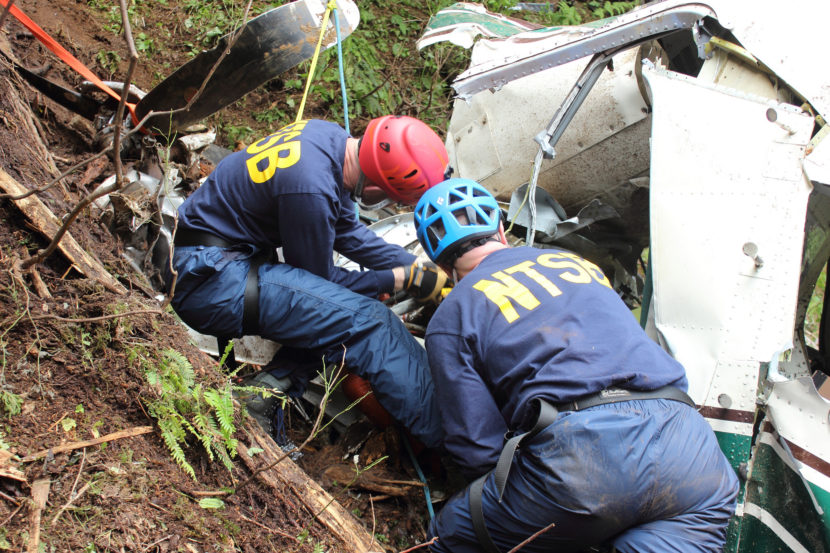
A new documentary-style series by the Smithsonian Channel goes behind the scenes with investigators trying to figure out why planes crashed near Juneau, Knik Arm and other Alaska locations.
A producer of “Alaska Aircrash Investigations” says it’s not another reality show. The TV crew had unprecedented access to information that’s not yet public.
From July to September of last year, a television crew from New York City embedded with the National Transportation Safety Board’s office in Anchorage.
Alaska Chief Clint Johnson said the crew got unprecedented access to seven different accidents around the state. When the general public was outside the yellow tape, the camera crew was inside.
“I think it’s very important to be very transparent (about) the way that we do our investigations. We are a public entity and I think the public has the right to be able to see exactly how we do our job,” Johnson said.
He said the goal of the agency is to investigate accidents and prevent them from happening again. The show is another way for the agency to get those messages out.
Alaska had about 80 airplane accidents in 2015, resulting in 22 deaths, according to the Federal Aviation Administration.
The Smithsonian Channel is calling the series a documentary but according to Johnson, to get access the production company agreed to give NTSB some control over the final content. Johnson said he and members of top NTSB management in Washington, D.C., watched rough cuts of the series.
“We had the ability to be able to screen and view and add comments and remove some things to make sure it’s not only technically correct but above all, what we’re trying to do is be sympathetic to the families,” Johnson said.
Tim Evans, one of the show’s executive producers for the Smithsonian Channel, said the TV crew was rolling when NTSB talked with grieving family members. He said producers had to get permission to use the footage. They also conducted their own interviews.
All the crashes in the series involved fatalities, often of the pilot.
“The interesting takeaway on working with the family members is all of them were obviously deeply affected and grieving, but each one of them said, ‘You know, this person wanted to fly and they knew what they were getting into and it’s a terrible tragedy but they loved flying and they loved Alaska,'” Evans said.
Episode descriptions allude to information that hasn’t been released to the public. The description of the episode on last July’s Wings of Alaska crash that occurred between Juneau and Hoonah says, “recovered in-flight data reveals an unusual flight path, which might uncover the true cause of the tragedy.”
NTSB’s Johnson said that is accurate information, “It’s a factual data dump. We’re not saying what probable cause is and we’re specifically trying to stay away from that, but obviously the facts of the case will be portrayed.”
Johnson said the crashes in the series are still active investigations. Final reports are still months out. But any information and supporting documents revealed in the show will be released to the public prior to the show airing.
“We need to make sure that all that information is available to the public not only through the series but also through the NTSB website. That’s one thing from an administrative standpoint that we need to make sure we release beforehand and we’re in the process of doing that right now,” Johnson said.
The six-part series premiers March 13 with an hour-long episode titled, “Juneau Flight Down.” Other episodes will feature crashes near Trapper Creek, Bethel, Kasilof, Iliamna, Knik Arm and Big Lake.